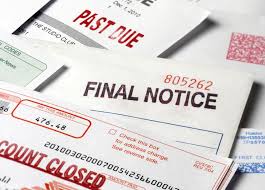
Debt collectors and collection agencies are good at making you feel like you need to provide them with lots of information. However, you have plenty of rights and should exercise them as much as possible. When they come calling, DON’T tell the debt collector things like:
- Your bank account details
- Any non-requested personal information
- How you spent money in the past (i.e., why you can’t pay the debt today)
Additionally, you should try to keep calm and refrain from using any derogatory language. Do not threaten the debt collector or say things that could be construed as implicit threats. Remember, you might be recorded, and anything you say can be used as evidence against you in your debt matter.
On the other hand, you should always ask specific questions about the debt collector or agency. Learn the name and contact information of the organization for which they work (they are required by law to tell you this). Ask for their name, information on the status of your debt, and how much you owe, specifically. The Fair Debt Collection Practices Act (FDCPA) requires them to answer these questions truthfully, and any false information they give may qualify you for compensation.
Sue the Collector is an organization of skilled, experienced attorneys dedicated to protecting the rights of consumers. We have helped many people in your situation seek justice and compensation, up to $1,000 for harassment incidents and $1,500 for illegally-made robocalls. To learn more about how we can help you, and to get advice on how to deal with debt collectors, call our office at (866) 768-6005. You can also schedule a FREE consultation with a member of our team by filling out the form on our online contact page.
How Debt Collectors Are Supposed to Behave
Handling interactions with debt collectors is not just about what you should say to them. It’s also about making sure they behave in accordance with the law. You have rights regarding how you should be addressed, the information you should be given, and when you should be called.
When Debt Collectors Can Call You
You should not receive any calls during normal sleeping hours. Debt collectors are allowed to call between 8:00 a.m. and 9:00 p.m. If they call you in the dead of night, you likely have a case for compensation.
Protection Against Verbal Abuse
Just as you should watch what you say and how you speak to debt collectors, so too should they be on their best behavior. Threats of violence to you or your property are illegal. Collectors are also not allowed to use language that is:
- Derogatory
- Racially charged
- Offensive
- Lewd or suggestive
- Vulgar
Regulations on Truthfulness
In addition to not using profanity, debt collectors must tell the truth when they speak with you. They cannot lie about how much you owe or use false or misleading escalation language (such as “we’ll let our lawyers know you didn’t want to cooperate.” Also, the Fair Credit Reporting Act means that they cannot send false information about your debt to credit reporting agencies. Any information in your credit report that you dispute is supposed to be checked out and verified or removed by those agencies.
Protection Against Embarrassment
In some cases, debt collectors will use tactics designed to humiliate or embarrass you about your debt situation. They may call you at work in the hopes of putting pressure on you, or contact your family or friends. However, there are strict rules in place that determine when they can call others. For example, if they know you are not allowed to receive personal calls at work, they cannot call you there. If they know your location information already, they are not allowed to call your family and friends seeking information on your whereabouts.
Get Justice for Wrongful Debt Collection Practices
Debt collectors often make it seem like they hold all the cards. In reality, they must abide by strict legal parameters when dealing with you and your debt. They cannot threaten you with violence, jail time, or destruction of property.
If you believe that your rights have been violated by debt collectors or collection agencies, speak to the team at Sue the Collector in a FREE consultation today. A member of our team can assess your case to determine whether you are eligible for compensation. If necessary, we can file a lawsuit against the debt collector to ensure that justice is served.
Call the offices of Sue the Collector by dialing (866) 768-6005, or fill out the form on our contact page to schedule your appointment. Together, we can hold debt collectors to the high standard of the law.




